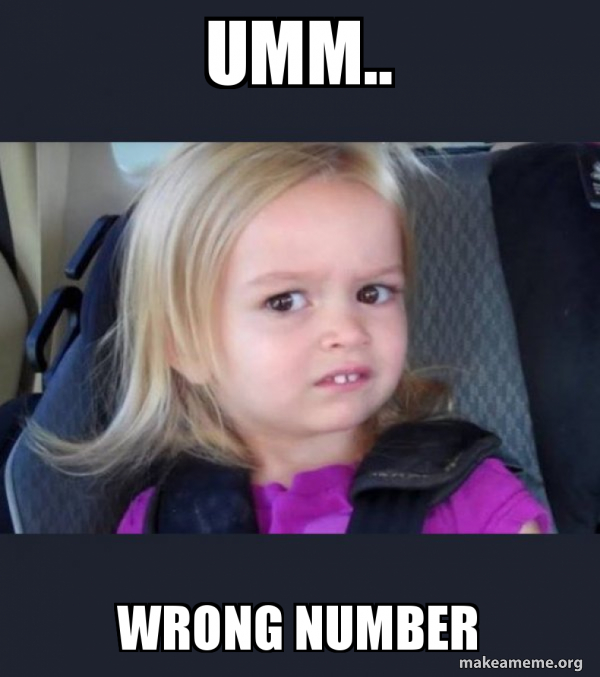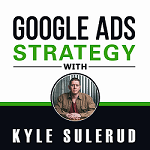Today I’m going to answer a question that wasn’t asked by anyone specifically, but I get this question a lot, and that is:
Why not target my competitors’ names?
I get this a lot because there are differing points of view on this. I’m going to give you my point of view which I’ve developed through years of managing accounts, looking at accounts, and seeing what actually happens when you target your competitors’ names as keywords.
Obviously, a lot of people think this is a good thing to do. Other people like me say:
“No, do not target your competitors’ names as keywords.”
First, let me say that there are exceptions to this, okay. There are definitely times when it would make sense to target your competitors’ name as a keyword. But there is a right way to go about this. You don’t want to target a competitor, and then simply send that traffic to your normal website. That’s not a good way to do it.
What you would consider doing instead is setting up a landing page that specifically compares you to that competitor. If they’re searching for a specific business, they need to know why your product or service is better than what they were just searching for. You need to make that apparent by actually doing some type of comparison on your page. I’ve seen this, I’ve seen people do this very effectively. And this is the only effective way that I’ve seen people target their competitors’ names.
Of course, you’d really only want to do this if one of your competitors was a huge player. If lots of people are going to Google and are searching for the name of that competitor, that’s when it might make sense to try to take some of that traffic. Turn them onto your business instead, and you do that by comparing yourself, making yourself the more obvious choice. That’s the only real exception.
Most of the time, you don’t want to target your competitors’ names.
And there are a few reasons for this.
First and foremost, if someone’s going to Google and searching for the name of a specific business, the vast majority of the time, all they’re looking for is a phone number.
- Maybe their friend told them about the business.
- Maybe they saw a commercial or another ad for that business.
- Maybe they’re already a customer of that business.
They’re really just looking for the phone number (of that business) so they’re typing in the name of that business, ready to get the phone number.
Now they see your ad, they see your ad at the top of the page. Well, if your ad has a phone number on it (or even if it doesn’t), if your ad is coming up at or close to the top of the page, someone thinks that the solution that they’re getting from Google right now is the answer to their question (which was: What’s the phone number for this business?)
What’s going to happen is they’ll click the call extension in the ad, or even click on the website, and then click the phone number on the top of the website. And they do this thinking that they’re actually calling the business they were searching for (Because again, they’re searching for a business they wanted the phone number. They see a phone number, they call it.)

It might be surprising to you that that would happen, that people wouldn’t understand the number their calling is actually a different business, but it happens so much that it’s a problem. It’s one of the main reasons why targeting your competitors’ names doesn’t work, because now people are calling your business or they’re calling your client, thinking they were calling another business. And it just leads to confusion on both ends.
The business they’re calling is wondering why they’re getting all these calls for other businesses. The customer is having a frustrating experience. And then the chance of that customer actually switching to this new business (that they call by mistake as a wrong number) is so incredibly low, that it’s not worth all the trouble of dealing with. All of these wrong number calls aren’t going to lead to anything.
That’s a huge problem. And I’ve seen businesses be hugely frustrated by this. They’re working with an ad agency. They’re getting calls, but they’re getting all these wrong number calls wondering what is going on. Well, that usually is what’s going on, people are searching for competitors and then they’re calling your business.
Let’s say, that’s not the case.
Let’s say someone understands who they’re calling, and they’re not calling you because it’s a wrong number. But they actually are searching for a different business, they see your ad, and they think for a minute: “Well, let me go see what this other company has to offer.” So they click, they go to your website, and they check you out. As an advertiser, that would be your goal. If you were targeting the name of a competitor, you would want someone to do that. You’d want someone to click on your website and go check you out.
The problem here, though, is that’s so much of a stretch.
People who are searching for a specific business are already so prepared to do business with that other company, or they already are doing business with that other company. They might go check you out just because they’re curious, but the odds of them actually deciding to change their mind and do business with a new company is extremely low. There was a reason they were searching for the original company. Either they saw an ad that really appealed to them, or they got a glowing review from a friend of theirs that said to go contact this specific company. That type of stuff is really hard to overcome, simply by putting your ad in front of these people.
Yes, it happens. Yes, you might get leads and sales. But it’s going to be at an extremely high cost, and those aren’t going to be the best quality leads.
My recommendation is not to target your competitors’ names.
If you don’t believe me and you still want to try, then I would strongly suggest setting up specific tracking that can tell you the leads and the calls that you’re getting from these competitor keywords. It’ll tell you exactly the kind of leads that you’re getting. It’ll show you exactly which calls are coming as a result of these competitors’ names.
If you prove me wrong, if you’re getting lots of really great leads and customers from those keywords, then, good for you. I’d actually love, love to see those results if you want to share them with me. Because what I think you’re actually going to experience, which is what I’ve seen time and time again, is that even if you’re getting leads from these types of keywords:
- They are not going to be good leads.
- They’re going to be expensive.
- They’re going to be a lot more trouble than they’re worth.
It would be a lot more beneficial just to exclude these keywords from your campaign. Don’t add them as keywords. Go even a step further and add them as negative keywords, so that you’re never paying for traffic from someone searching for a competitor.
Have a question you’d like answered here?
You can submit your own question to be answered on The Google Ads Strategy Show. I’m frequently answering questions from listeners. If you have a question you’d like to ask, go to this link: https://googleadsstrategy.com/ask-a-question/
